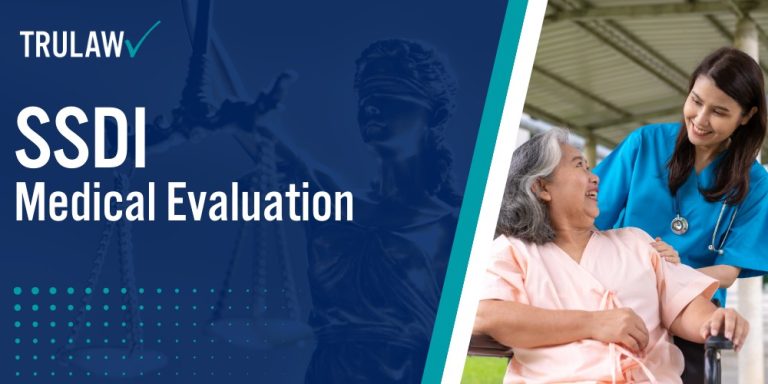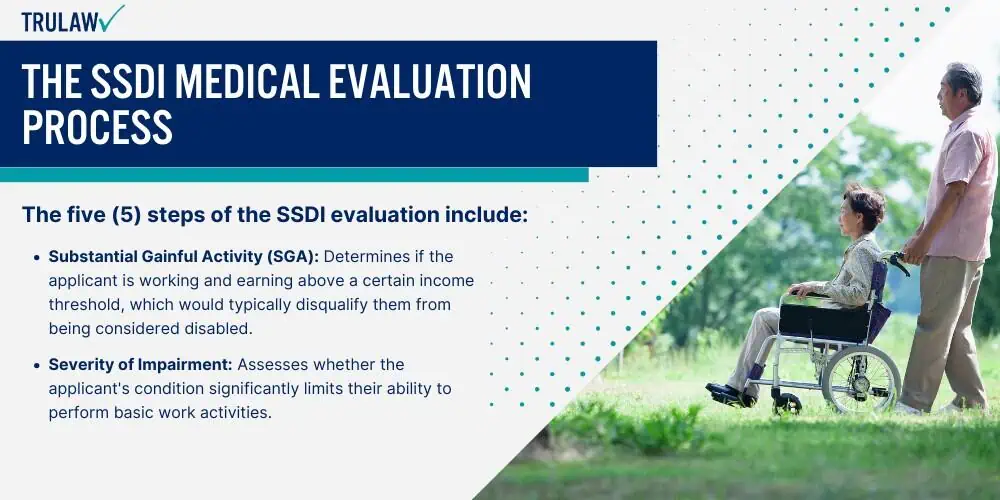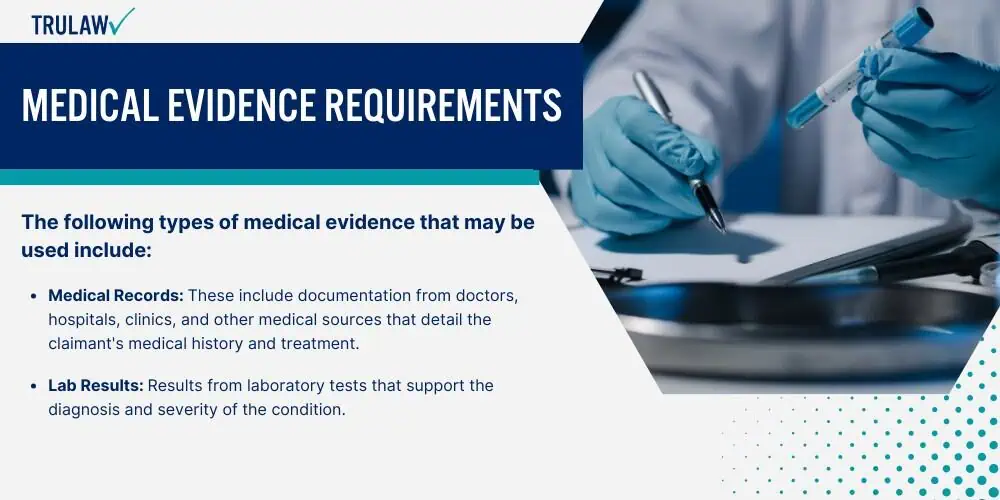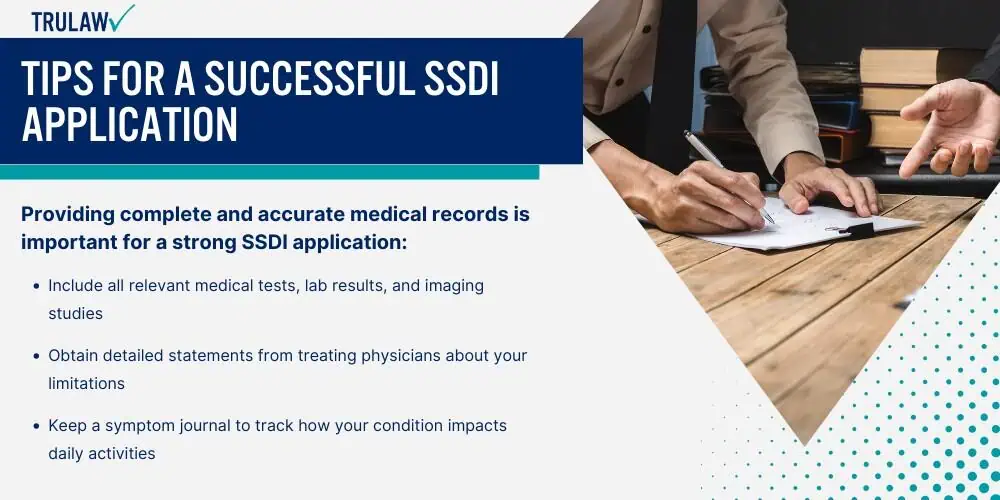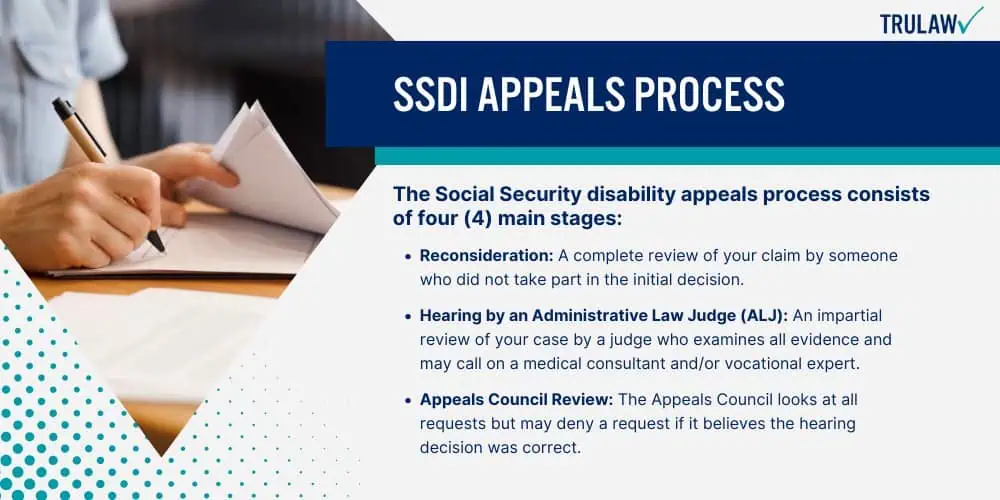To qualify for Social Security Disability Insurance (SSDI), individuals must meet specific criteria set by the Social Security Administration (SSA).
SSDI applicants must have accumulated enough work credits through employment covered by Social Security.
Additionally, SSDI defines disability as a condition that prevents substantial gainful activity and is expected to last at least one year or result in death.
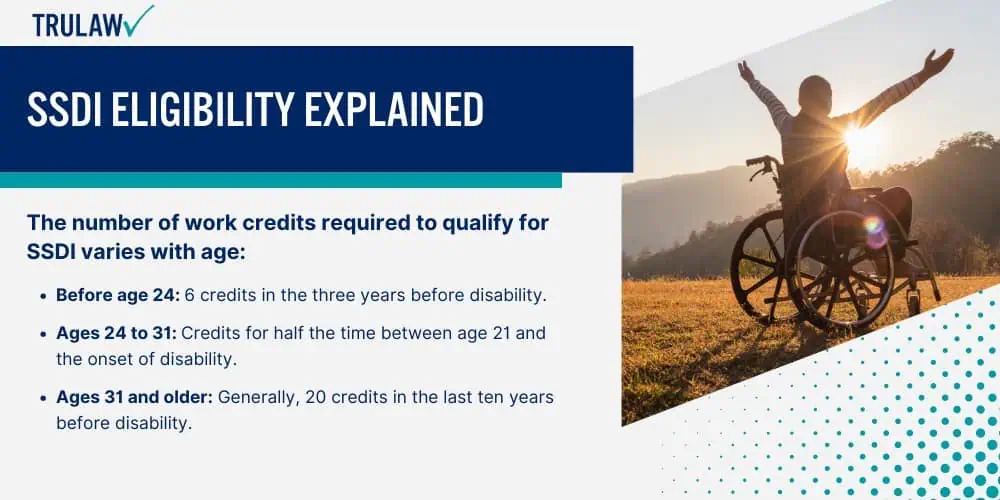
Work Credits Requirements for SSDI Benefits
Accumulating a sufficient amount of work credits within a specified time period is required to qualify for social security disability benefits.
Individuals earn work credits based on their annual income from employment or self-employment to earn up to 4 credits each year.
The number of work credits required to qualify for SSDI varies with age:
- Before age 24: 6 credits in the three years before disability.
- Ages 24 to 31: Credits for half the time between age 21 and the onset of disability.
- Ages 31 and older: Generally, 20 credits in the last ten years before disability.
If you have accumulated enough work credits, then you must consider whether your medical conditions meet the SSA’s definition of disabled.
First, you must have a medically determinable physical or mental impairment that:
- Has lasted or is expected to last for a continuous period of at least 12 months; or
- Is expected to result in death.
If your condition meets that criteria, it must also prevent you from performing substantially gainful activity (SGA).
What is the Social Security Administration Definition of Substantial Gainful Activity (SGA)?
The SSA defines substantial gainful activity (SGA) as work that:
- Involves significant physical or mental activities; and
- Is usually done for pay or profit (whether or not a profit is actually realized).
Other aspects considered when the SSA is determining if an applicant is prevented from performing substantial gainful activity include, but are not limited to:
- Earnings threshold: In 2024, the monthly SGA income limit is $1,550 for non-blind individuals and $2,590 for blind individuals. Earning above these amounts generally means a person is engaging in substantial gainful activity.
- Exceptions: Some activities are generally not considered SGA, such as self-care, household tasks, hobbies, therapy, school attendance, and social programs.
- Self-employment considerations: For self-employed individuals, the SSA uses special formulas called the “Countable Income Test” or the “Three Tests” to determine SGA.
- Subsidized work: If an employer provides special accommodations or extra support due to a disability, the SSA may only count the actual value of the work performed towards SGA, not the full wages paid.
- Unsuccessful work attempts: Work attempts lasting 6 months or less that end or are reduced below SGA level due to the impairment may not be considered SGA.
Other Aspects in the SSA’s Definition of Disabled
Other aspects in the SSA’s definition of a disability include, but are not limited to:
- The condition must be severe enough to prevent the person from doing their past work or adjusting to other work.
- The impairment must be medically determinable, meaning it results from anatomical, physiological, or psychological abnormalities that can be shown by medically acceptable clinical and laboratory diagnostic techniques.
The SSA uses a 5-step sequential evaluation process to determine if someone meets this definition of disability.
This includes assessing the person’s current work activity, severity of impairment, ability to do past work, and ability to adjust to other work.
It’s important to note that this is considered a strict definition of disability.
The SSA states that their disability beneficiaries are “among the most severely impaired in the country” and are more than three times as likely to die in a year compared to others their age.
If you or someone you love is struggling with a medical condition inhibiting your ability to perform SGA, you may be entitled to monthly social security benefits.
Contact TruLaw using the chat on this page for a free SSDI consultation and learn more about financial assistance options and support available to you today.
